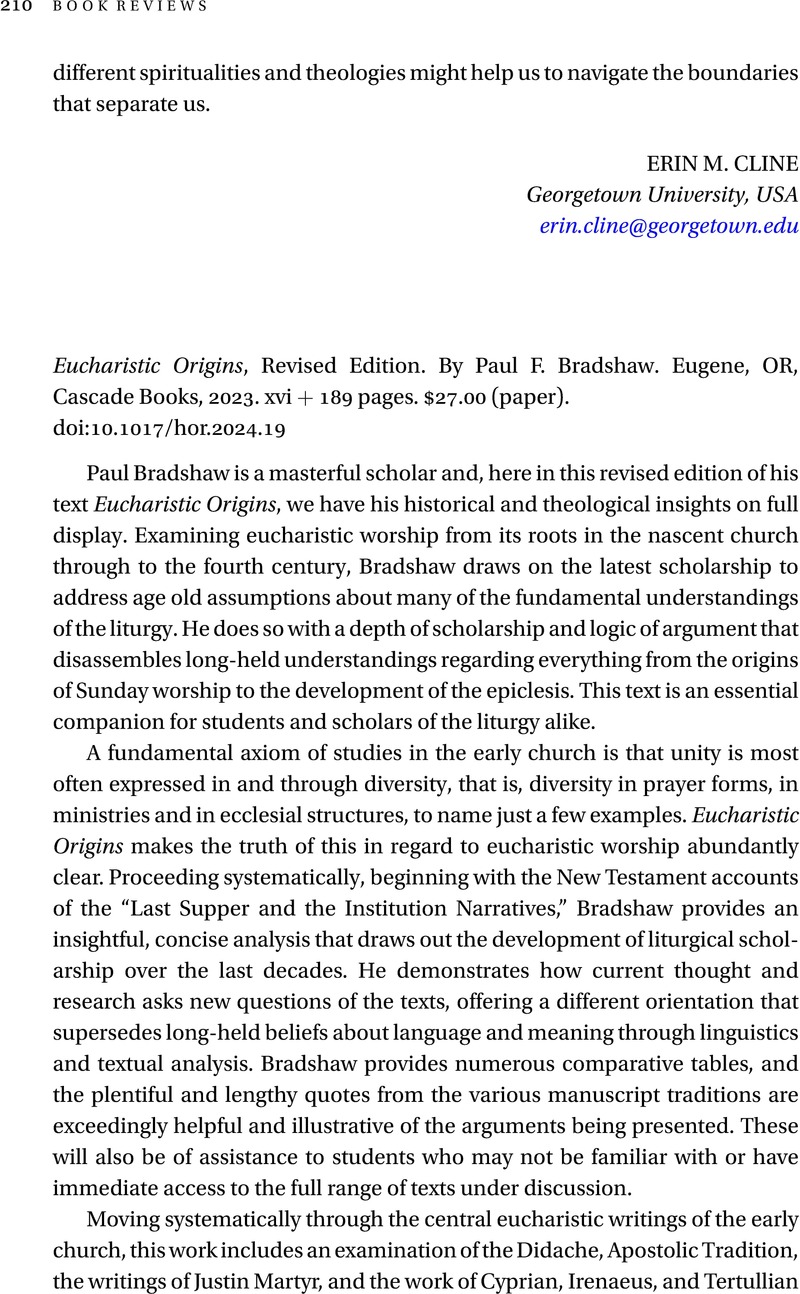No CrossRef data available.
Eucharistic Origins, Revised Edition. By Paul F. Bradshaw. Eugene, OR, Cascade Books, 2023. xvi + 189 pages. $27.00 (paper).
Review products
Eucharistic Origins, Revised Edition. By Paul F. Bradshaw. Eugene, OR, Cascade Books, 2023. xvi + 189 pages. $27.00 (paper).
Published online by Cambridge University Press: 29 May 2024
Abstract
An abstract is not available for this content so a preview has been provided. Please use the Get access link above for information on how to access this content.

Information
- Type
- Book Review
- Information
- Copyright
- © College Theology Society 2024


